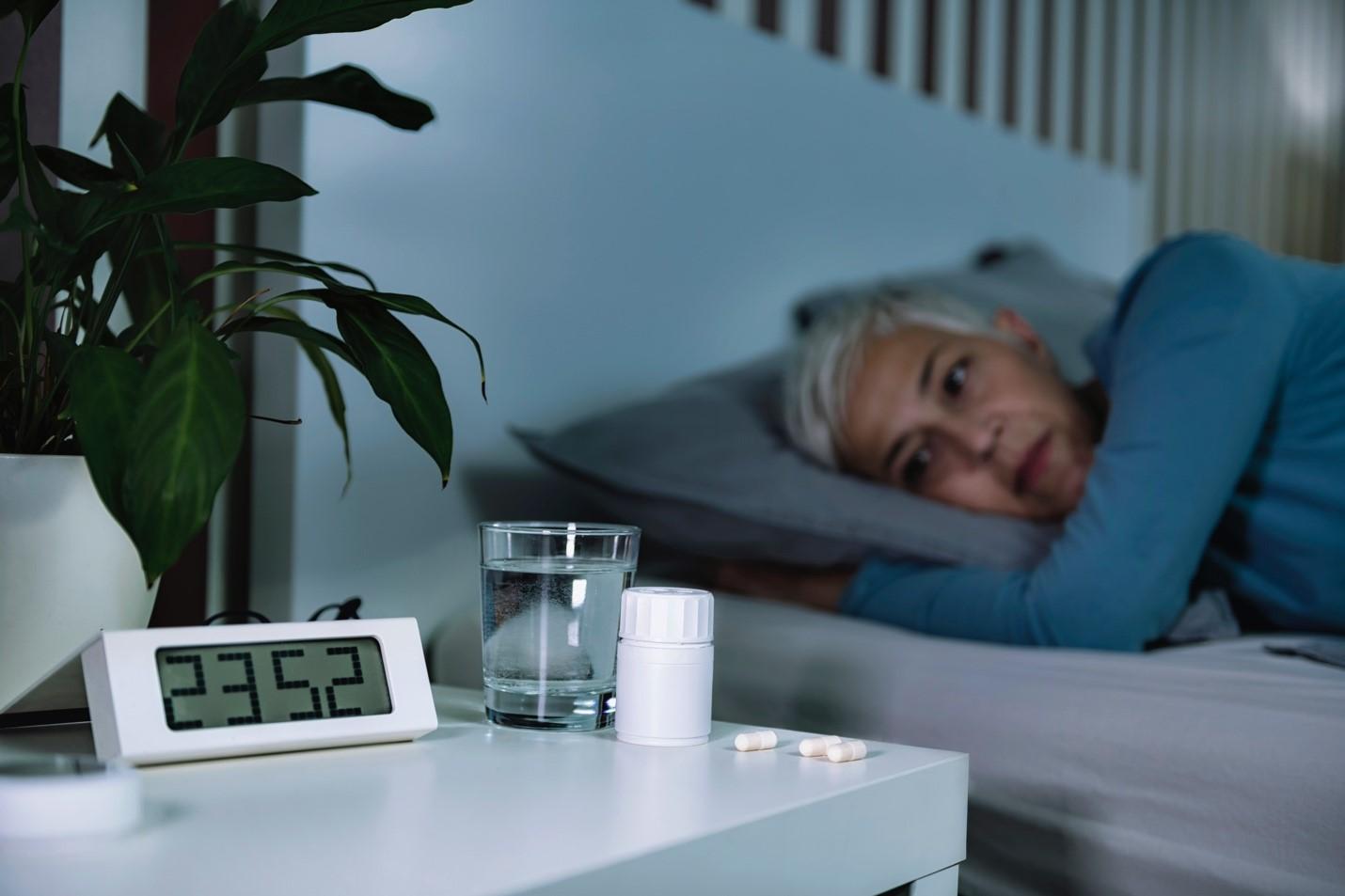Insomnia Symptoms in the Elderly

Insomnia may seem like a minor inconvenience, but it shouldn't be overlooked, especially in the elderly. Lack of sleep can have significant negative consequences, ranging from physical fatigue to cognitive impairment. In older adults, insomnia can lead to issues such as daytime fatigue, impaired thinking, and increased risk of accidents due to drowsiness.
Factors Contributing to Insomnia in the Elderly
1. Mental Health Problems: Stress, anxiety, or depression can make it difficult to fall or stay asleep.
2. Chronic Illnesses: Conditions like diabetes that require frequent urination at night can disrupt sleep.
3. Daytime Habits: Excessive napping during the day can make it hard to sleep at night.
4. Environmental Factors: Light and noise in the home can disturb sleep, particularly for older adults who may be more sensitive to such disruptions.
Basic Solutions to Improve Sleep in the Elderly
1. Optimize the Sleep Environment: Ensure the bedroom is dark, quiet, and comfortable.
2. Limit Daytime Napping: Encourage activities during the day to promote better sleep at night.
3. Avoid Stimulants: Reduce or eliminate the intake of tea, coffee, and other caffeinated beverages.
Understanding Insomnia
Insomnia is a common sleep disorder characterized by difficulty falling or staying asleep. It can lead to daytime fatigue, irritability, and trouble concentrating.
Diagnosing Insomnia
1. Physical Exam: To check for underlying medical conditions.
2. Sleep Habits Review: Using questionnaires to gather information about sleep patterns.
3. Sleep Study: An overnight test to monitor sleep and identify issues like sleep apnea or restless legs syndrome.\

Treating Insomnia
1. Lifestyle Changes:
- Establish regular sleep habits.
- Stay active during the day.
- Avoid caffeine and alcohol.
- Create a comfortable sleep environment.
2. Cognitive Behavioral Therapy (CBT): Techniques to change unhelpful thoughts and behaviors that interfere with sleep.
3. Prescription Medicines: Short-term use of sleeping pills can help, but long-term use is not recommended.
4. Over-the-Counter Sleep Aids: Antihistamines can induce sleep but may cause daytime drowsiness and confusion.
5. Alternative Medicine: Melatonin, valerian, acupuncture, yoga, and meditation, although their effectiveness varies.
Tips for Better Sleep
- Maintain a consistent sleep-wake schedule.
- Be physically active during the day.
- Avoid caffeine, alcohol, and nicotine in the evening.
- Create a dark, quiet, and cool sleep environment.
- Practice relaxation techniques before bed.
- If you can't fall asleep after 20 minutes, get up and do something relaxing.
- Wake up at the same time every day, even if you haven't slept well.
Insomnia is often treatable. If you are having trouble sleeping, consult your doctor for the best treatment options tailored to your needs.
Sources:
https://www.arokago.com/health-library/insomnia/diagnosis
https://theparents.com/th/article/1/อาการนอนไม่หลับในผู้สูงอายุ
The Parents Wellness and Rehabilitation
Share this article
More Articles
Discover more insights on health care and medical tourism.

Best Ways To Prevent Contact Lens Infections?
The most important thing in contact lens care is cleanliness which is not only the contact lens but also a contact lens storage case. Here are two important steps to contact lens care.

EBOO Therapy in the 21st Century: Restoring Health in a Toxic World
EBOO (Extracorporeal Blood Oxygenation and Ozonation) is a medical innovation that uses a blood filtration system combined with oxygen and ozone infusion. This process removes toxins, heavy metals and harmful by-products from the bloodstream while simultaneously increasing oxygen levels, improving circulation and supporting vital organ function.

Is cycling really effective in treating osteoarthritis of the knee? Discover the techniques for strengthening your knees through cycling without surgery.
For those experiencing knee pain or suffering from osteoarthritis, physical movement can often be daunting. Many choose to stop moving for fear of further knee damage, but in reality, inactivity leads to muscle atrophy and knee stiffness. One of the most commonly recommended methods by doctors and physical therapists worldwide is cycling to treat osteoarthritis. But the question is, how can one cycle effectively for rehabilitation without worsening the joint condition? This article provides the answer.